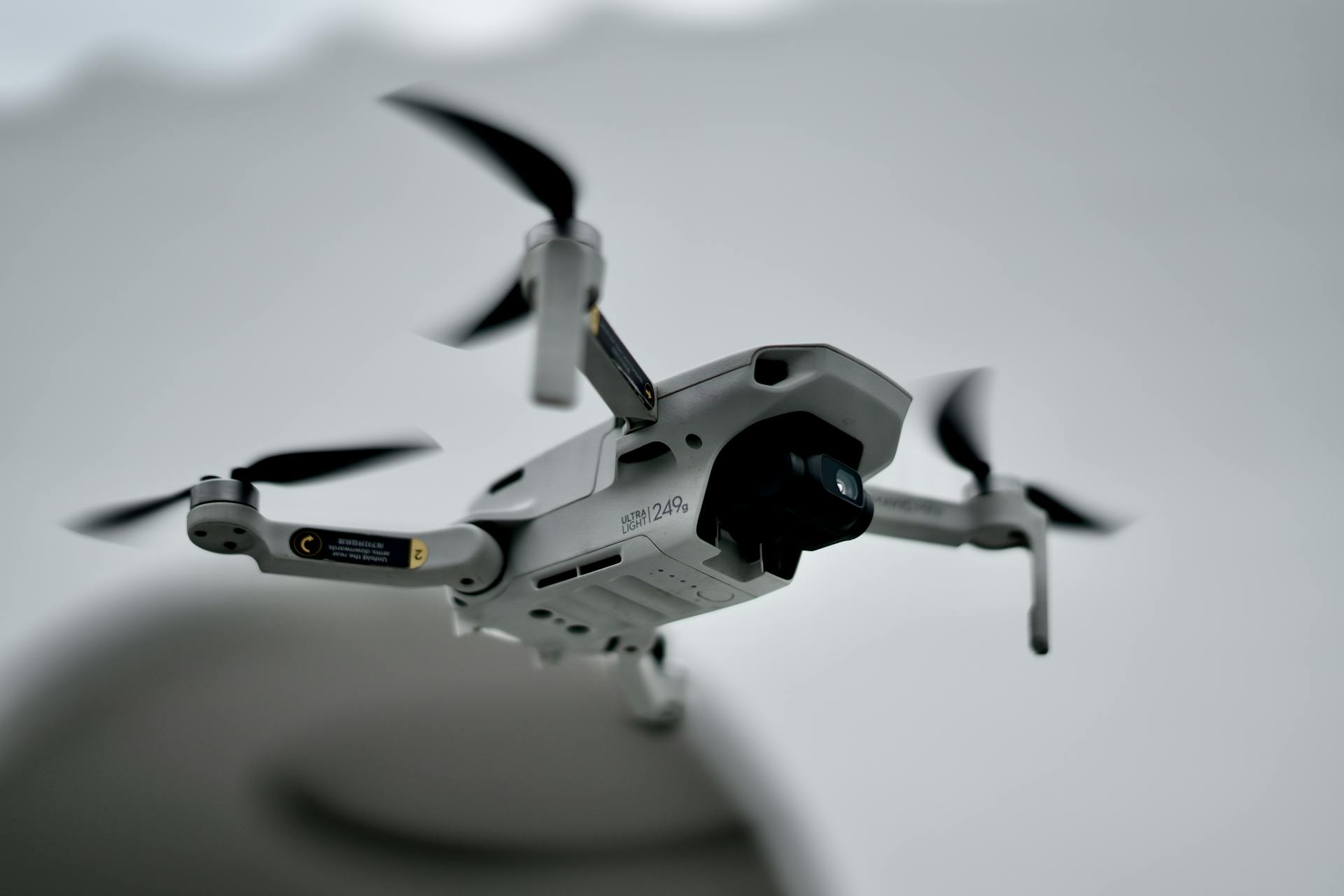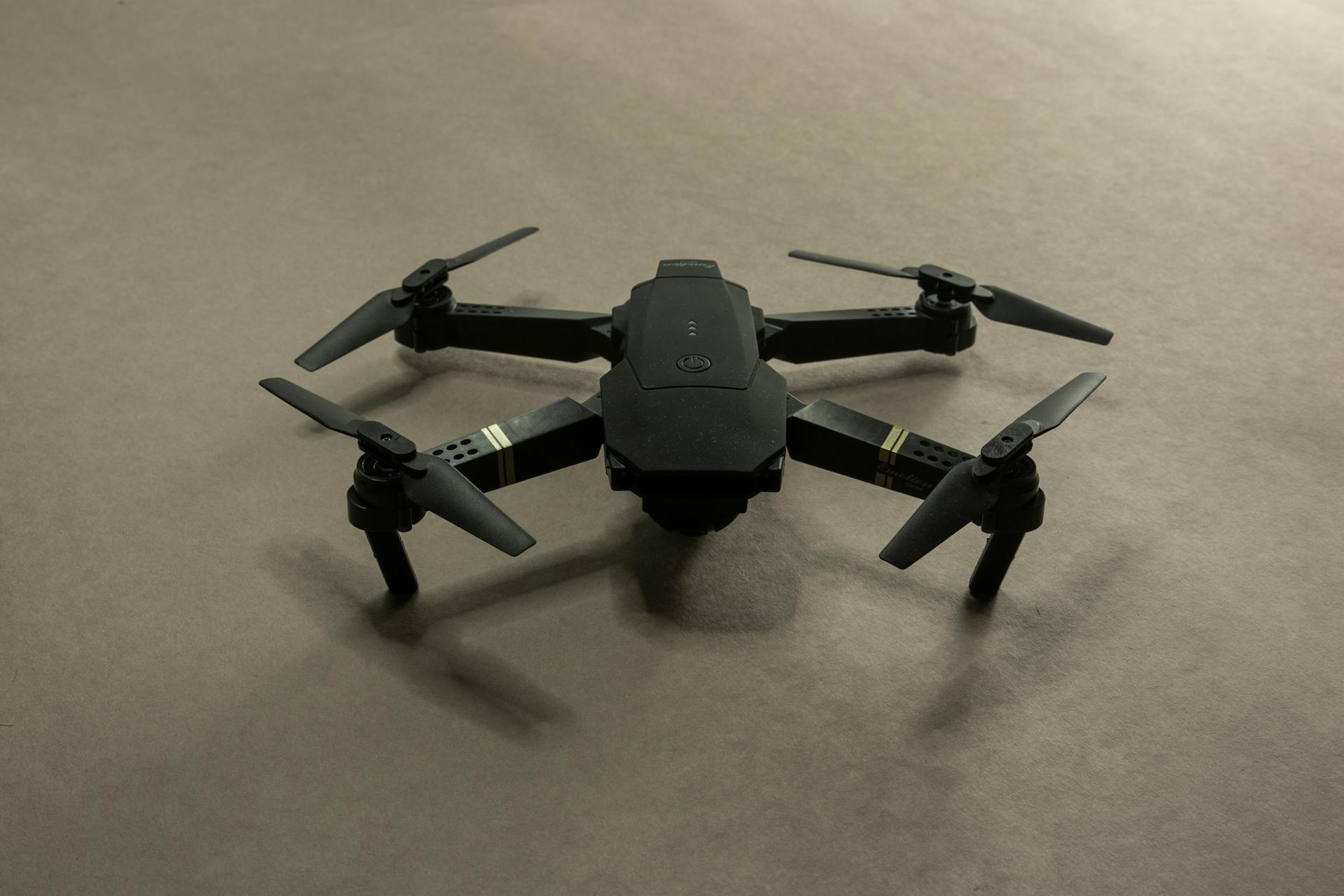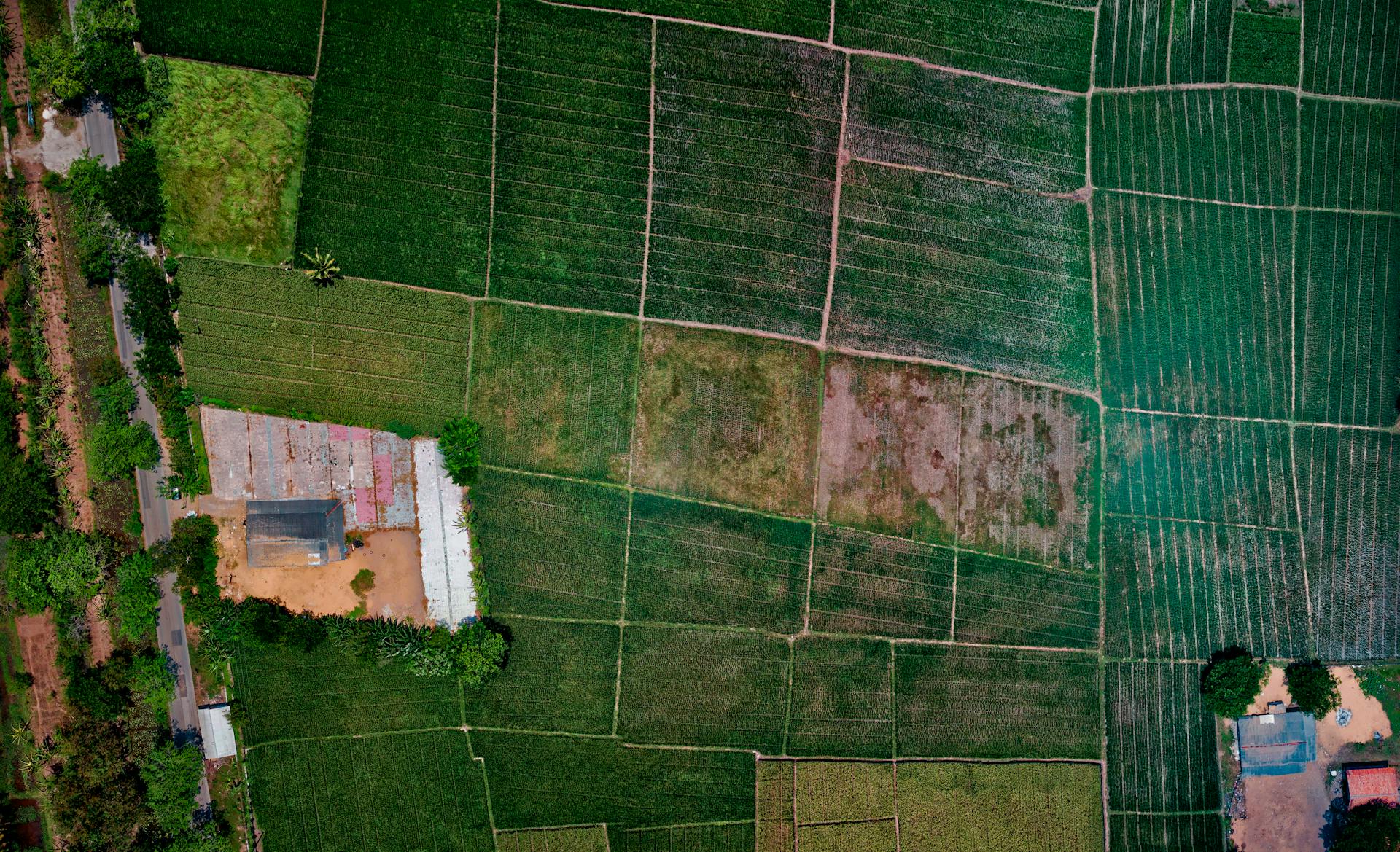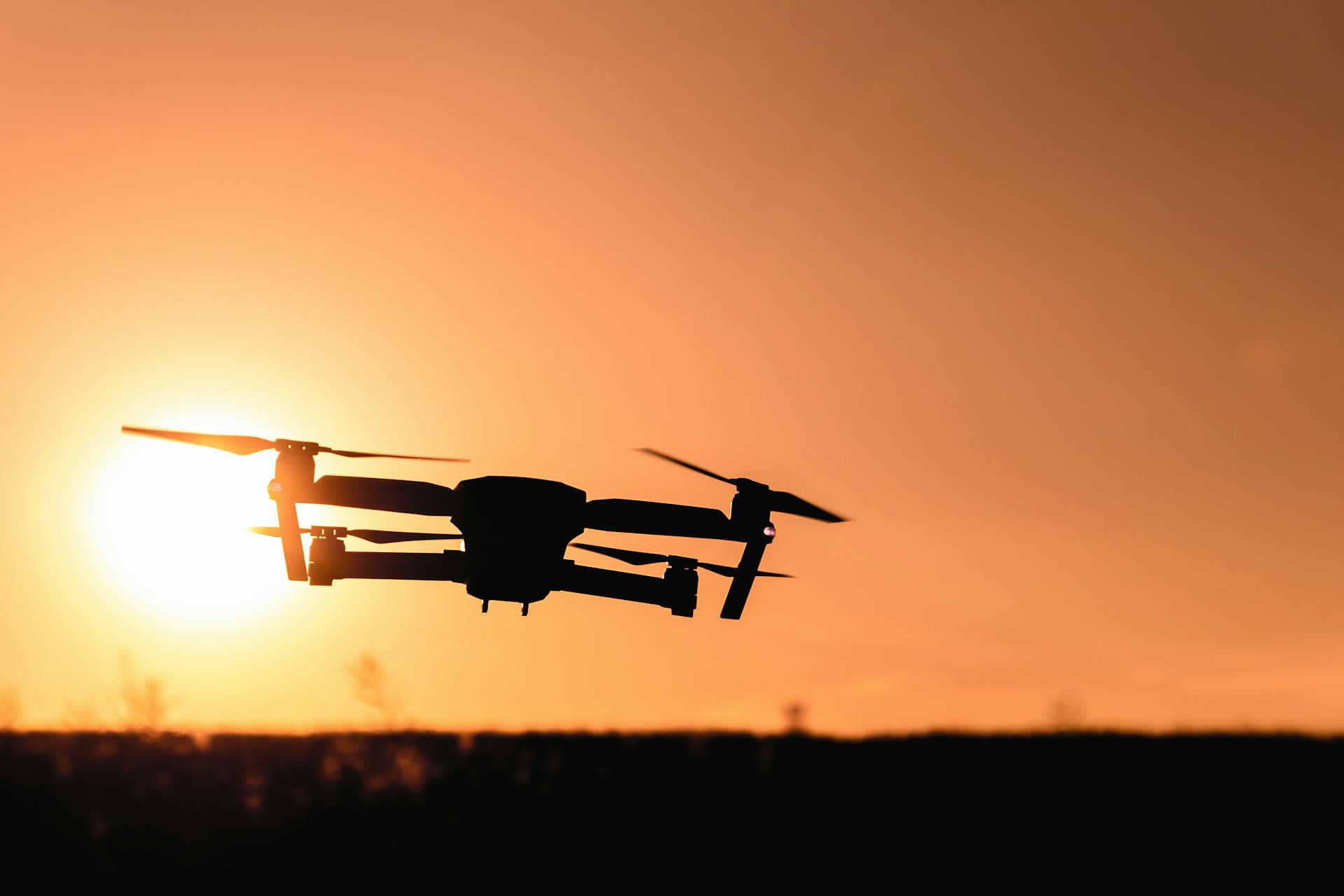
The incident of a drone hitting a plane is a stark reminder of the very real danger in aviation. A drone colliding with a plane can cause significant damage and put the lives of everyone on board at risk.
The likelihood of a drone hitting a plane is increasing due to the growing number of drones in the air. In the United States alone, there were over 1.7 million drone registrations in 2020.
The consequences of a drone hitting a plane can be severe. The incident in 2019 where a drone struck a helicopter in New York City resulted in a significant loss of control, highlighting the potential for catastrophic damage.
For another approach, see: Can I Bring My Drone on a Plane
The Incident
The Sunday collision of the Embraer 175 passenger plane and a drone is one of the most alarming in recent times.
The incident occurred when Envoy Air's flight ENY396 returned to O'Hare shortly after its regular 6:20 p.m. evening departure for Detroit, after pilots reported striking something at 2,500 feet.
The plane landed safely with no injury to passengers or crew, but the incident highlights the growing concern of drone collisions with passenger planes.
Pilots radioed in the collision shortly after it occurred, saying "Departure, Envoy 3961, we just hit something. I believe we hit a drone about 30 seconds ago. We'd like to return to O'Hare."
The pilot initially flew a holding pattern to burn off some of the craft's fuel before getting landing approval from air traffic control, requesting on-ground intervention once there.
The incident was later confirmed to have occurred about four miles northwest of O'Hare, where the FAA preliminary notification on the incident said the "aircraft was in a climbing left turn and struck a UAS, Chicago, IL."
The resulting damage was rated as minor, and the Embraer remained in Chicago for the night before being shuttled to a nearby facility and eventually put back into flight rotations on Monday.
Safety Concerns
The incident highlights the very real dangers of reckless, negligent, and sometimes malicious use of drones.
Chief Superintendent Martin Hendy warns that flying drones close to airports is a serious issue.
The Civil Aviation Authority considers it totally unacceptable to fly drones near airports, where they can pose a significant risk to aircraft.
Steve Landells from the British Airline Pilots Association agrees, stating that it was only a matter of time before a drone strike occurred.
Plane in Canada
The incident in Canada highlights the growing concern of drones posing a threat to aviation safety. A plane operated by charter airline Skyjet was struck by a drone while approaching Quebec City's Jean Lesage International Airport.
The drone hit the plane's wing, but fortunately, the aircraft only sustained minor damage and was able to land safely. Six passengers and two crew members were on board.
Transportation authorities in Canada have been trying to come up with rules to prevent such incidents. Earlier this year, they announced safety measures making it illegal to fly recreational drones within 5.5 kilometers of an airport.
Broaden your view: Personal Drone Plane
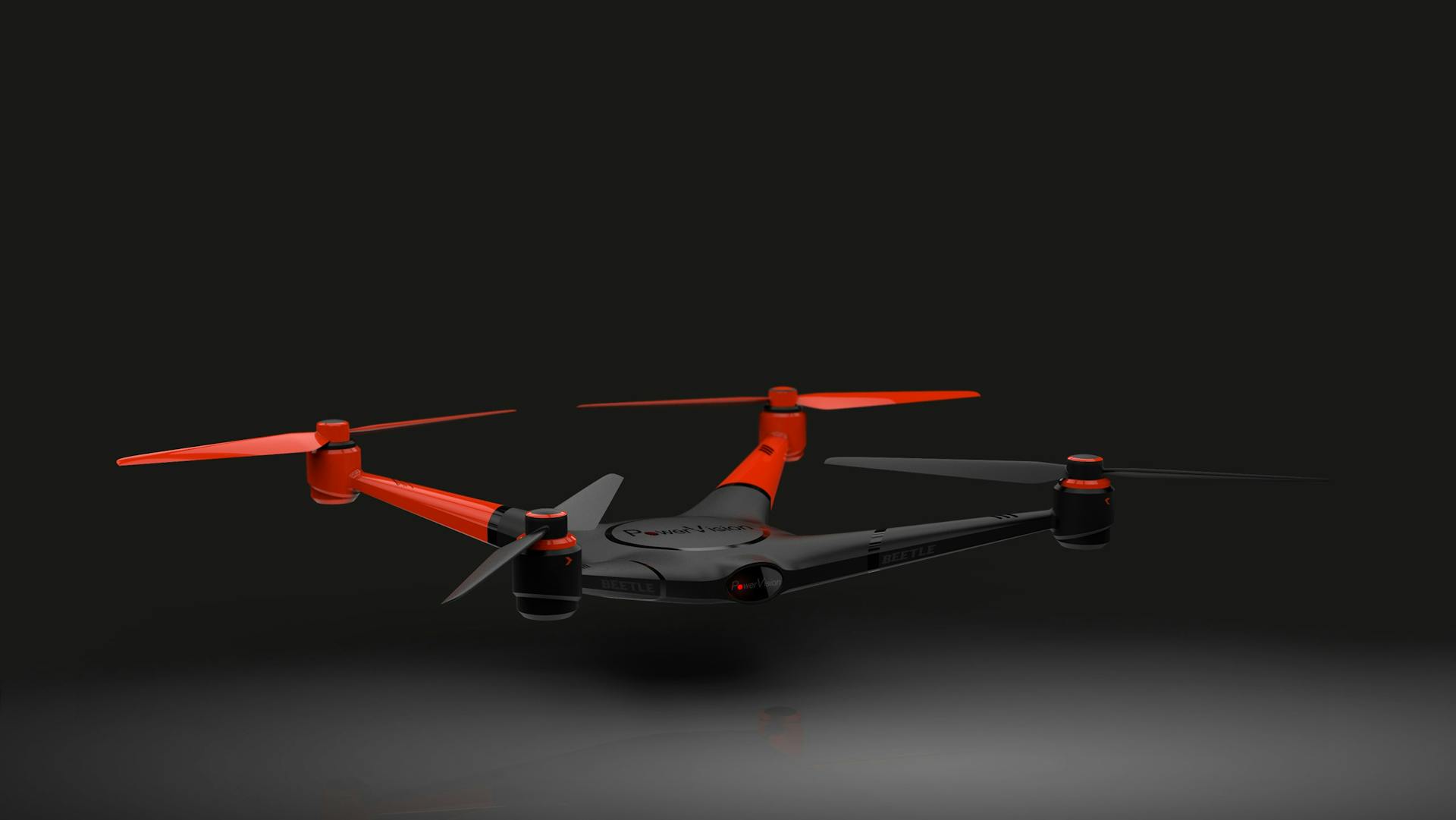
The drone that struck the plane was flying much higher than legally allowed, hovering 450 meters above the ground. This is a significant concern, as a drone hitting the window of a cockpit could incapacitate the pilot, or damage an engine, resulting in catastrophic consequences.
In Canada, officials report that 131 of the 1,600 drone incidents this year posed a threat to aviation safety. This is a sobering reminder of the need for strict regulations and responsible drone usage.
Very Real Danger
There's a very real danger of drones posing a threat to aviation safety.
Chief Superintendent Martin Hendy, head of the Met's aviation policing command, highlighted this issue by saying it's due to reckless, negligent, and sometimes malicious use of drones.
Drone incidents are on the rise, and it's only a matter of time before we have a drone strike, as Steve Landells from the British Airline Pilots Association (Balpa) warned.

Flying drones close to airports is totally unacceptable, according to a Civil Aviation Authority (CAA) spokesman.
The CAA has already taken steps to address this issue, but more needs to be done to prevent a disaster.
In Canada, a plane was recently hit by a drone, and it's the first confirmed collision of its kind.
The incident highlights the importance of enforcing existing rules to prevent such incidents in the future.
The International Air Transport Association (IATA) has confirmed that this is the first recorded case of a drone hitting a passenger plane.
Expand your knowledge: Rc Drone Plane
Analysis
Flying a drone near an airport can already get you up to five years in prison, and there are rules against flying them beyond the direct line of sight or near buildings and crowds.
The US has introduced a compulsory registration scheme to help track down drone owners in case of an accident. This is a good step towards ensuring accountability.
Drones are not allowed to fly above 400ft (122m), but some recent incidents have shown that people are flying them much higher, up to 8,000 feet. That's a huge problem.
The British Airline Pilots Association is calling for more research into what would happen if a drone got sucked into an engine or crashed into a plane's windscreen. This is a crucial area of study.
Geo-fencing software can prevent drones from flying in restricted areas, but it's not yet widely used. This technology has the potential to greatly reduce the risk of drone-related incidents.
Enforcement of drone rules is a challenge, as it requires significant resources and funding. However, education and awareness campaigns can also play a big role in preventing incidents.
The UK Air Proximity Board has reported a number of serious near-misses at UK airports involving drones. This is a wake-up call for authorities to take action.
David Black from Blackwing Aerial Services thinks that a register is a good idea, but it won't stop people from using drones as weapons. He's right – no system is foolproof.
Better technology for detection and avoidance is needed to prevent drone-related incidents. This could include improved geo-fencing software and more effective tracking systems.
Featured Images: pexels.com
